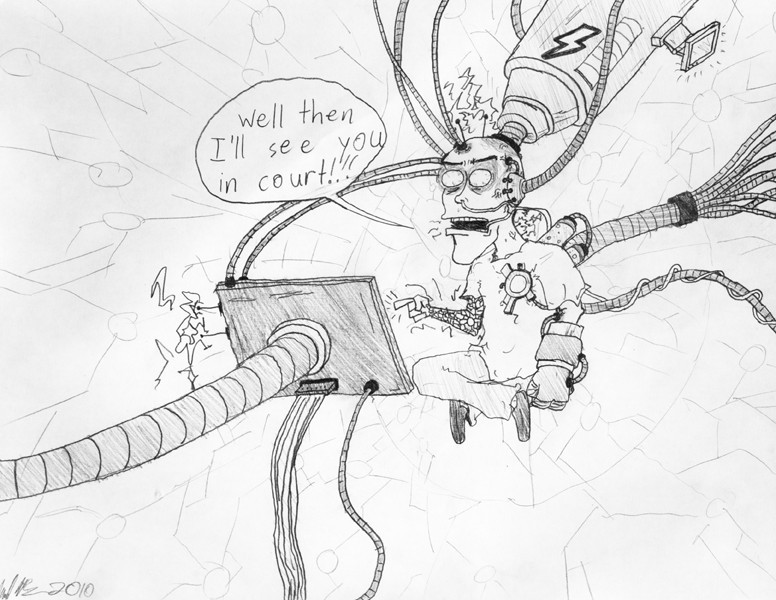Cisco deal puts U of W in the technological lead, but not without questions
Students may have noticed that they have to log in to access the University of Winnipeg student Internet network. This is new Cisco Systems technology and is just a small taste of the outcome of a multimillion-dollar deal between Cisco, the U of W and the provincial and federal governments.
The feds and the province will be contributing a combined $7 million, but the contribution from Cisco – an American corporation that designs and sells consumer electronics, networking and communications technology and services – is unclear. University of Winnipeg president Lloyd Axworthy has stated they are contributing $5 million, yet the company’s press release says $2 million.
Part of the deal will introduce an entirely new research department with 34 cutting-edge research labs and a department chair with the title Cisco Chair for Collaborative Technologies.
The Cisco partnership is the largest research-based grant this university has ever had. The main advantage of the technology is the ability to have life-life web conferences, which was referred to as “Skype on steroids” at the announcement of the deal at the university’s board of regents.
The Cisco technology “really establishes the U of W as a hub for a new green technology,” said Axworthy.
The technology will allow increased capacity for distance learning at the university by increasing the number of classrooms equipped with devices for recording lectures. As well, it will allow guest speakers to conduct lectures without U of W shelling out for transportation costs and leaving a carbon footprint.
Kelly Ross, University of Winnipeg Students’ Association (UWSA) vice president of student services and member of the university’s board of regents, doesn’t think students will want to see a televised lecture.
“Anyone can see a lecture on YouTube. Part of seeing a speaker is being in the same room with someone you admire.”
Ross is also concerned about the name of the new department.
“I’m wary of naming anything after corporations or people ... I’m especially wary if it’s naming university departments.”
That raises additional questions regarding research rights.
“Who will the research belong to? Who will hold the copyright to the research?” said David Jacks, resource co-ordinator with the Canadian Federation of Students (CFS). “Does that mean any private company can come buy a classroom and have a monopoly over technology in the classroom?”
Axworthy asserts that despite naming the position after a private company, full control of the department will be in the university’s hands.
“Once we get the chair established, that person will have all the rights of academic freedom,” he said.
Immediately after the deal was struck, concerns surfaced regarding the board of regents’ role in approving the deal. Ross stated that the technology was announced on Friday, Jan. 15, but the meeting to approve the deal was not until the following Monday.
Axworthy said the deal has been two years in the making and the board has received updates throughout the course. Ross attested to the updates but still didn’t like approving.
Dan Hurley, U of W senior executive officer and adviser to the president, added that the board voted unanimously for the Cisco deal.
Workshops for how the Cisco Systems technology can be used began for U of W senior executives on Friday, Feb. 5. Faculty will be introduced to the technology through the next academic year, when students can also expect consultation.
To hear the full interview with Dr. Axworthy, visit Samuel’s blog at www.uniter.ca/blog
Published in Volume 64, Number 19 of The Uniter (February 11, 2010)







